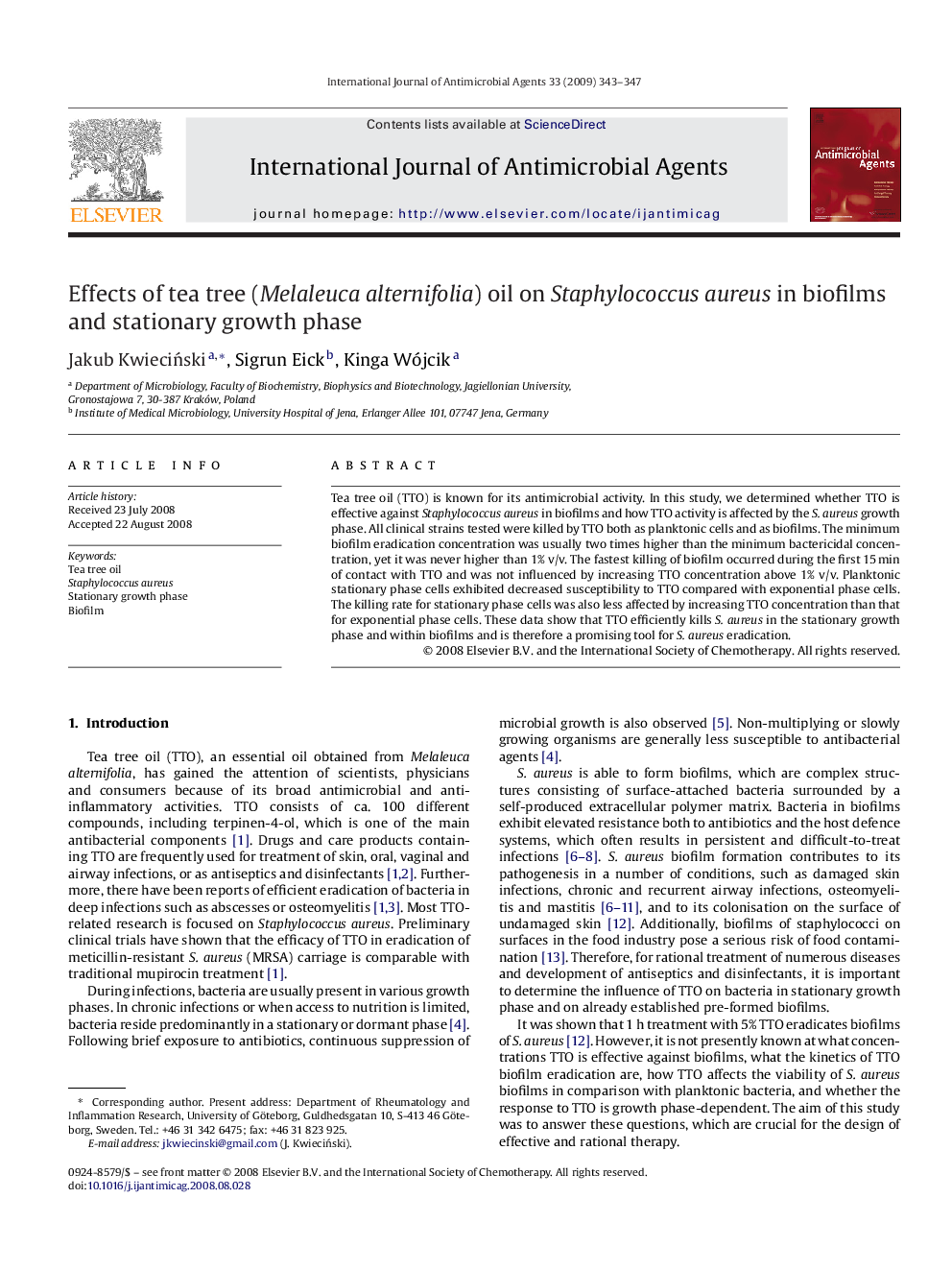| Article ID | Journal | Published Year | Pages | File Type |
|---|---|---|---|---|
| 3359877 | International Journal of Antimicrobial Agents | 2009 | 5 Pages |
Tea tree oil (TTO) is known for its antimicrobial activity. In this study, we determined whether TTO is effective against Staphylococcus aureus in biofilms and how TTO activity is affected by the S. aureus growth phase. All clinical strains tested were killed by TTO both as planktonic cells and as biofilms. The minimum biofilm eradication concentration was usually two times higher than the minimum bactericidal concentration, yet it was never higher than 1% v/v. The fastest killing of biofilm occurred during the first 15 min of contact with TTO and was not influenced by increasing TTO concentration above 1% v/v. Planktonic stationary phase cells exhibited decreased susceptibility to TTO compared with exponential phase cells. The killing rate for stationary phase cells was also less affected by increasing TTO concentration than that for exponential phase cells. These data show that TTO efficiently kills S. aureus in the stationary growth phase and within biofilms and is therefore a promising tool for S. aureus eradication.
